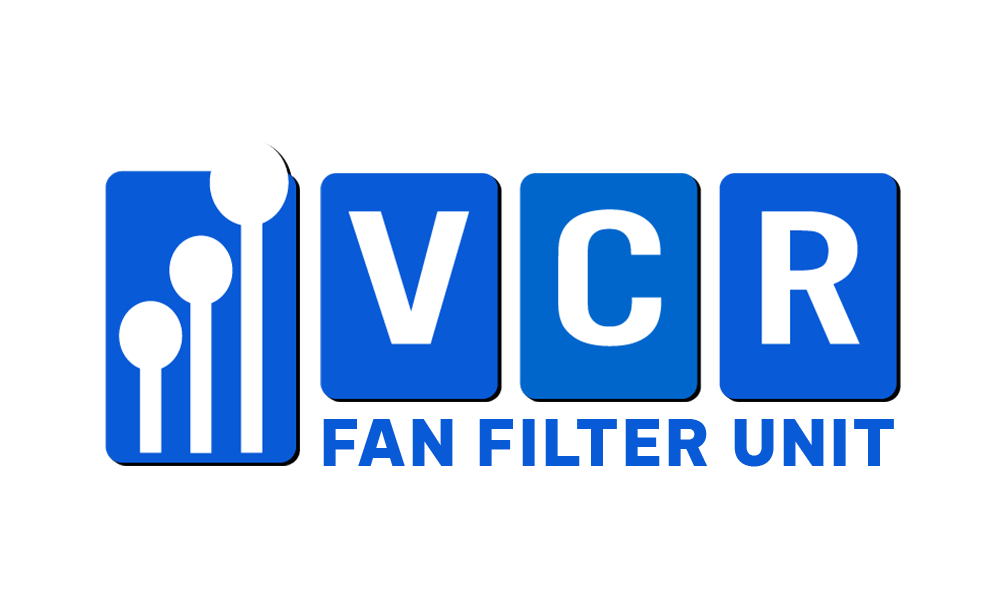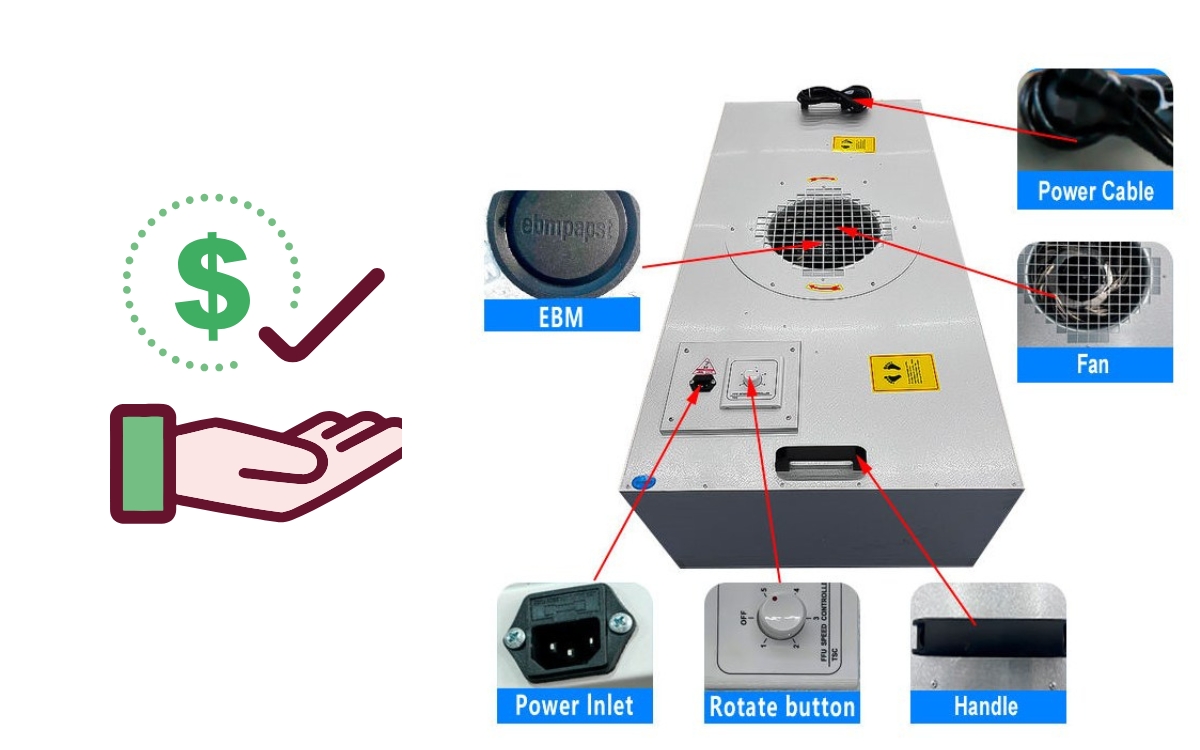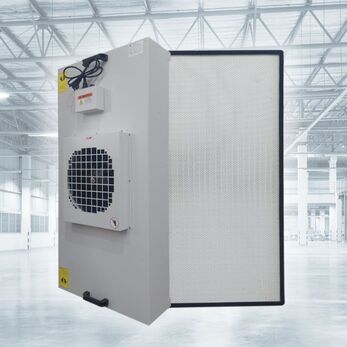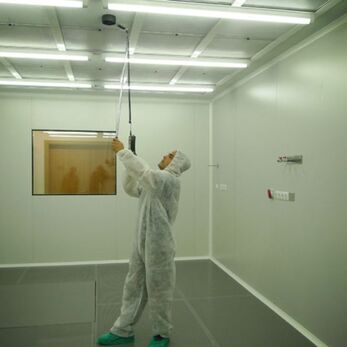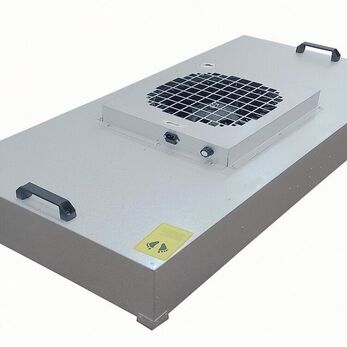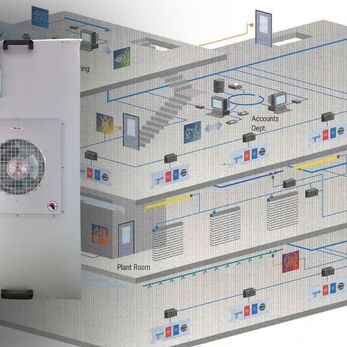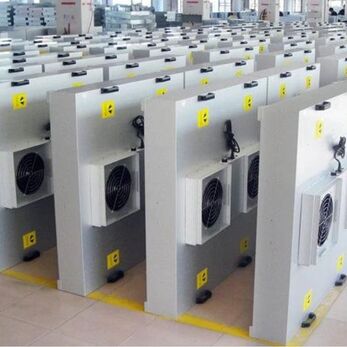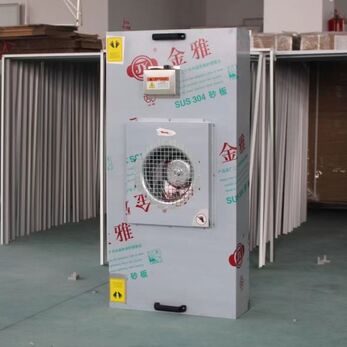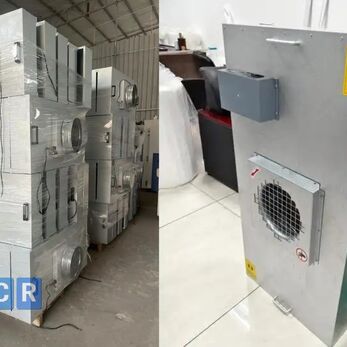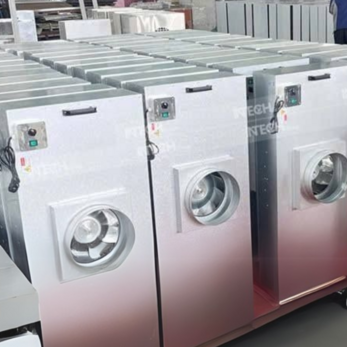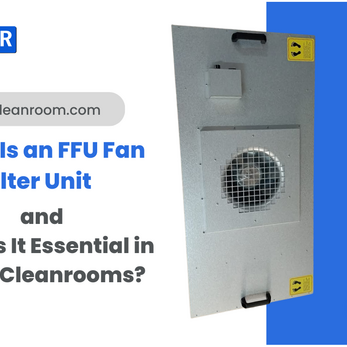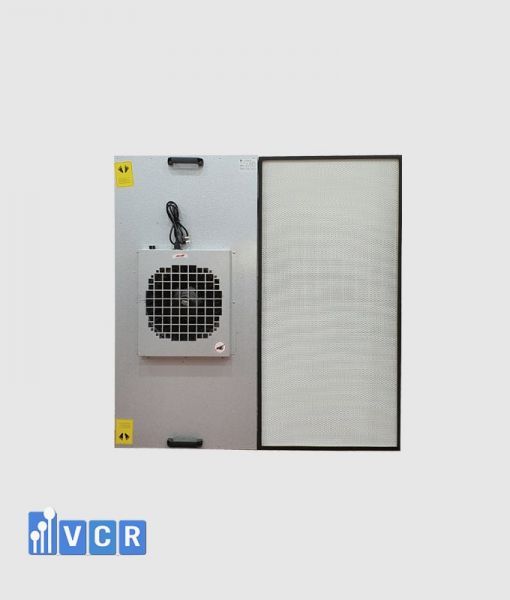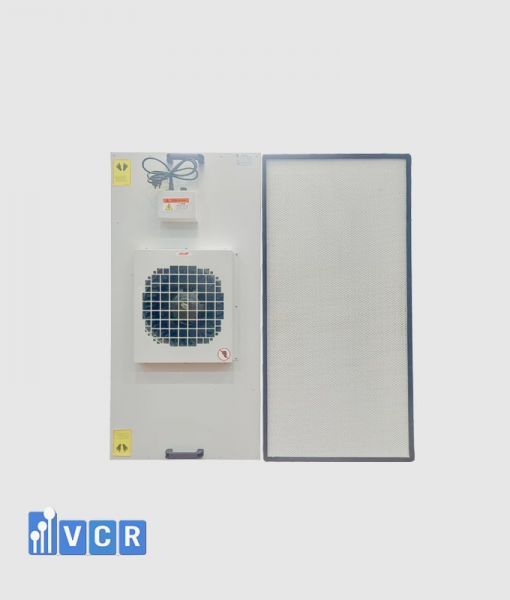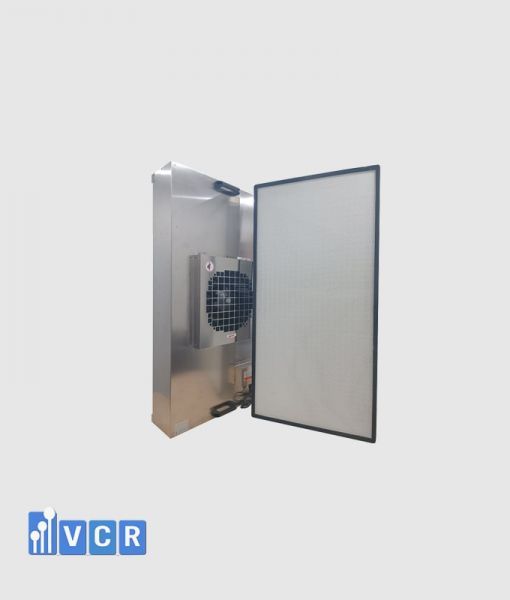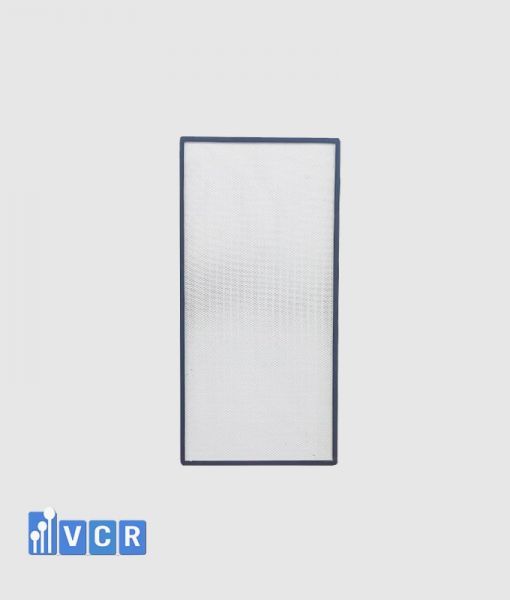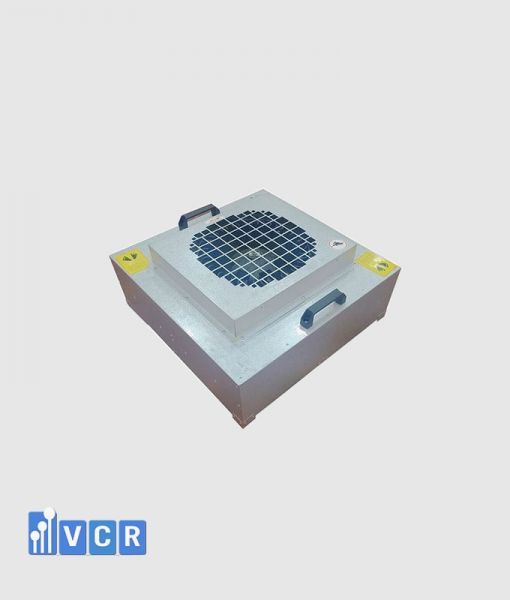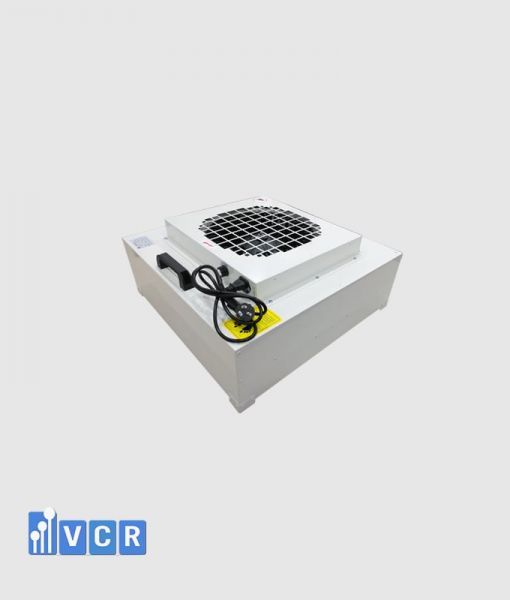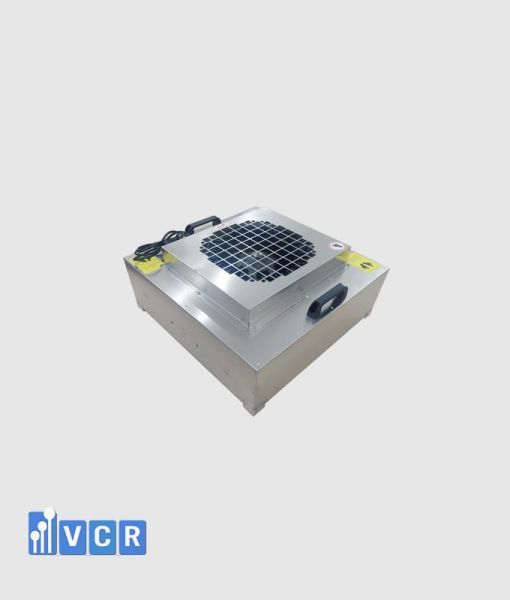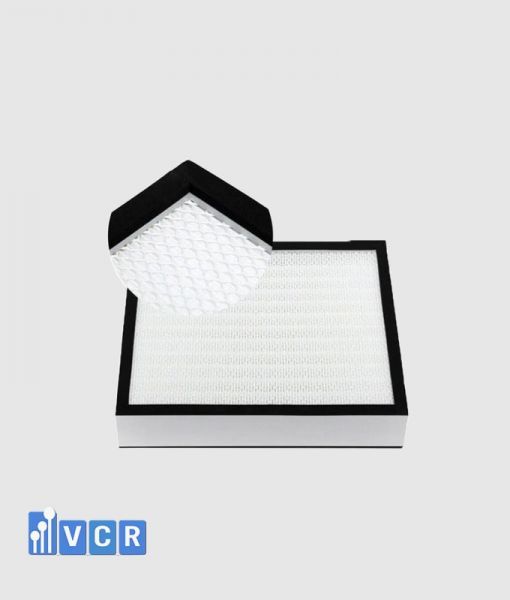FFU (Fan Filter Unit) is an air filtration device that integrates an exhaust fan and HEPA/ULPA filter, installed directly on the clean room ceiling to create a laminar flow of clean air. In the cosmetics industry, the use of FFU not only helps control air quality but also ensures that products are not cross-contaminated.
- 1. What is an FFU? Why is it essential in cosmetic manufacturing facilities?
- 2. Key factors affecting FFU pricing for cosmetic plants
- 3. FFU Price List for Cosmetic Manufacturing Facilities - Updated for 2025
- 4. FFU Selection Guide for Cosmetic Manufacturing Plants
- 5. Notes on Installing and Maintaining FFUs in Cosmetic Manufacturing Plants
- 6. Frequently Asked Questions about FFUs in Cosmetic Facilities
- 7. Need a Detailed FFU Quotation for Your Cosmetic Facility?
1. What is an FFU? Why is it essential in cosmetic manufacturing facilities?
FFU (Fan Filter Unit) is an air filtration device that integrates a fan and a HEPA/ULPA filter into a single module, typically mounted directly on the cleanroom ceiling to create a vertical laminar airflow. It is an optimal solution for maintaining air quality in environments requiring high cleanliness, such as cosmetic manufacturing plants.
Why is FFU essential in the cosmetics industry?
In cosmetic production—especially during filling, packaging, and weighing processes—clean air is critical to ensure:
- Prevention of contamination from particulates and microorganisms that may affect product stability
- Minimization of cross-contamination between product batches or fragrances
- Maintenance of positive pressure to block dirty air from adjacent zones
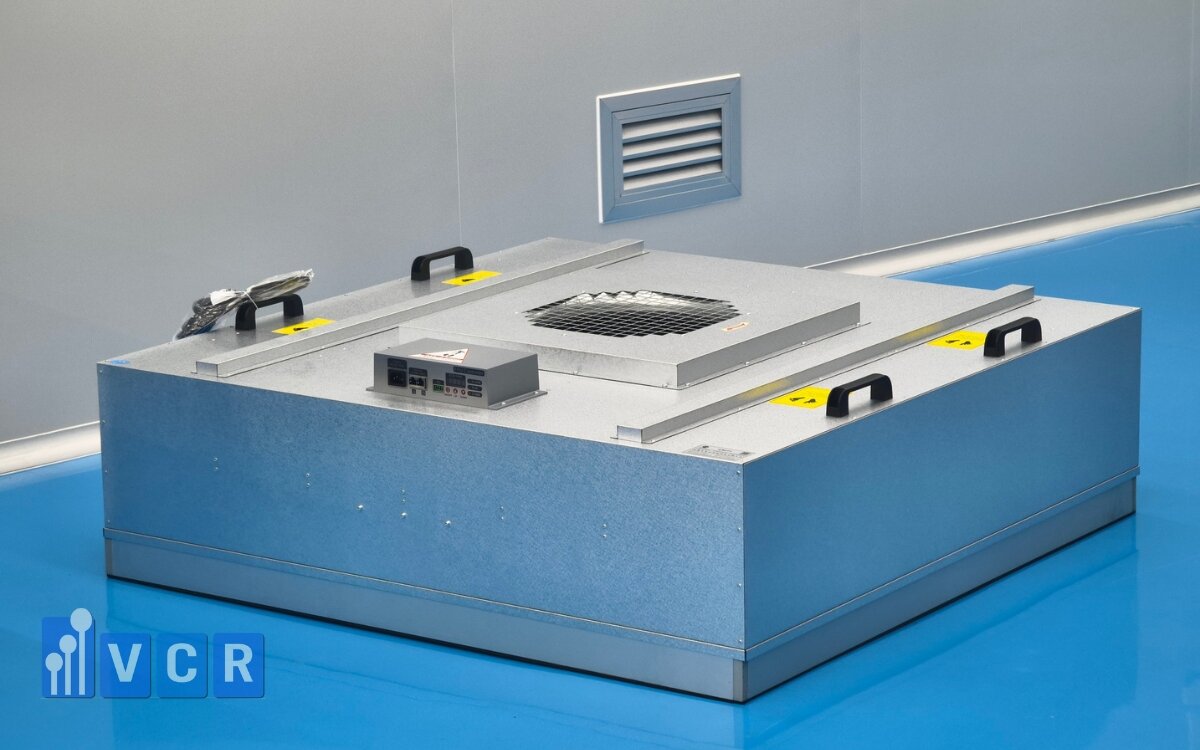
FFUs help maintain a stable cleanliness level (ISO Class 7-8), save space, and offer flexibility for scalable production layouts.
FFU vs. other air filtration devices
|
Device |
Construction |
Installation Location |
Advantages |
Limitations |
|
FFU |
Fan + HEPA filter |
Cleanroom ceiling |
Active airflow, easy installation, modular |
More expensive than HEPA Box |
|
HEPA Box |
HEPA filter without fan |
End of ducting system |
Low cost, simple setup |
Dependent on central fan system |
|
AHU (Air Handling Unit) |
Central air handling system |
Separate technical room |
Controls temperature and humidity for entire facility |
Bulky, hard to adjust per area |
For small and medium-sized cosmetic plants, FFUs are ideal thanks to their flexibility, high performance, and ease of deployment in specific zones.
2. Key factors affecting FFU pricing for cosmetic plants
The price of an FFU (Fan Filter Unit) is not fixed; it varies based on technical specifications and specific application requirements. Below are the main factors influencing FFU pricing in cosmetic manufacturing:
1. Required cleanliness level
- Filling and packaging areas typically require ISO Class 7-8
- Higher cleanliness = higher filtration efficiency → more expensive FFU with premium HEPA/ULPA filters
2. Type of motor used in the FFU
|
Motor Type |
Features |
Impact on Price |
|
AC |
Traditional, low cost, higher power consumption |
Lower price |
|
EC |
Energy-saving, smooth speed control |
~20-30% higher price |
|
Inverter |
Flexible control, ideal for pressure-sensitive zones |
Medium to high price |
3. Size and quantity of modules
- Common sizes: 600x600 mm, 1200x600 mm
- Larger orders typically get discounted unit pricing
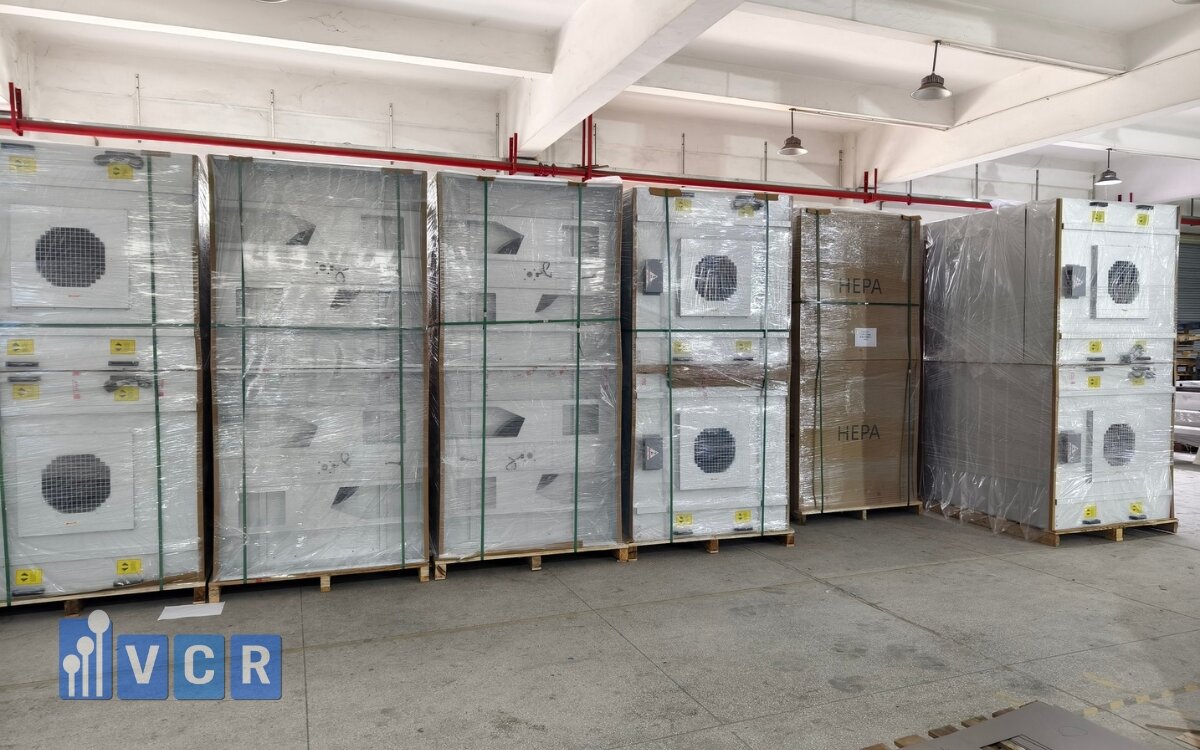
4. Type of filter used
|
Filter Type |
Efficiency |
Price Level |
|
HEPA H14 |
99.995% @ ≥ 0.3µm particles |
Medium |
|
ULPA U15 |
99.9995% @ ≥ 0.1µm particles |
~20-40% higher |
5. Optional upgrades
- Integrated LED lighting
- Differential pressure gauge
- Remote or app-based control
- Interlock and pressure sensor integration, etc.
While these features enhance user experience and monitoring, they also increase overall unit cost depending on customization.
See more: Understanding FFU's Impact on HEPA Filters
3. FFU Price List for Cosmetic Manufacturing Facilities - Updated for 2025
The investment cost of FFU (Fan Filter Unit) in cleanrooms for the cosmetics industry depends on several technical factors such as motor type, filtration grade, module size, and housing material. Below is the latest reference price list:
|
FFU Type |
Size (mm) |
Motor |
Filter Grade |
Material |
Estimated Price (VND) |
|
Basic FFU with AC Motor |
600 x 600 |
AC |
HEPA H13 |
Powder-coated steel |
7,800,000 |
|
Energy-saving FFU with EC Motor |
1200 x 600 |
EC |
HEPA H14 |
Stainless Steel 304 |
12,500,000 |
|
Premium FFU with integrated sensors |
1200 x 600 |
EC |
ULPA |
Stainless Steel 304 |
16,800,000 |
|
Custom GMP-compliant FFU |
Customizable |
AC / EC |
H13 / H14 |
As required |
Contact for quote |
Prices exclude VAT and shipping fees. VCR offers customizations based on technical requirements and order quantities.
4. FFU Selection Guide for Cosmetic Manufacturing Plants
Not all FFUs are suitable for every area in a cosmetic production facility. Depending on production characteristics, required cleanliness level, and budget, businesses should consider the following scenarios:
Filling & Packaging Area
- Characteristics: Sensitive area prone to cross-contamination between different fragrances and ingredients.
- Recommended FFU:
→ EC motor FFU + HEPA H14 or ULPA filter
→ Prefer models with built-in sensors to monitor pressure and airflow for consistent control
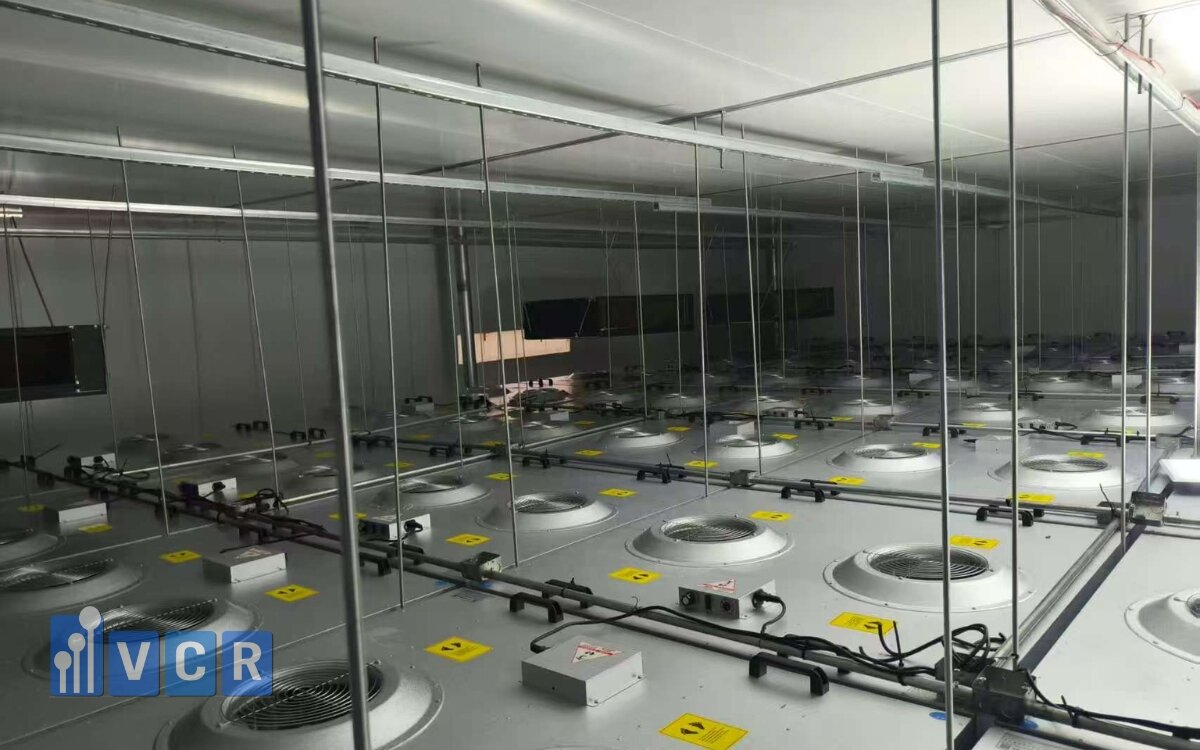
Raw Material Weighing Area
- Characteristics: Risk of fine particle dispersion, especially with powder ingredients.
- Recommended FFU:
→ Basic AC FFU or energy-saving EC FFU
→ Combine with pre-filtration system and localized dust extraction
Changing Room - Personnel Airlock
- Characteristics: Transition zone between cleanroom levels.
- Recommended FFU:
→ Compact 600x600 FFU with AC or EC motor
→ Choose cost-effective models for easy replacement and quick installation
Facilities Compliant with ISO 22716 or GMP
- Characteristics: Entire facility must maintain strict contamination control and undergo periodic audits.
- Recommended FFU:
→ Custom-designed GMP FFUs with complete technical documentation
→ Use Stainless Steel 304 housing, EC motor, and integrated alert + calibration features
TIP: Work with VCR’s technical experts to determine the optimal number of FFUs, airflow direction, and installation layout for maximum filtration efficiency and cost-effectiveness.
See more: Optimizing FFU Energy Efficiency - A Comprehensive Guide
5. Notes on Installing and Maintaining FFUs in Cosmetic Manufacturing Plants
FFU (Fan Filter Unit) is not just a basic air filter device—it plays a crucial role in determining air cleanliness in critical cleanroom areas. Therefore, proper installation and maintenance are essential to ensure long-term performance and compliance with standards like ISO 22716, GMP, or ISO 14644.
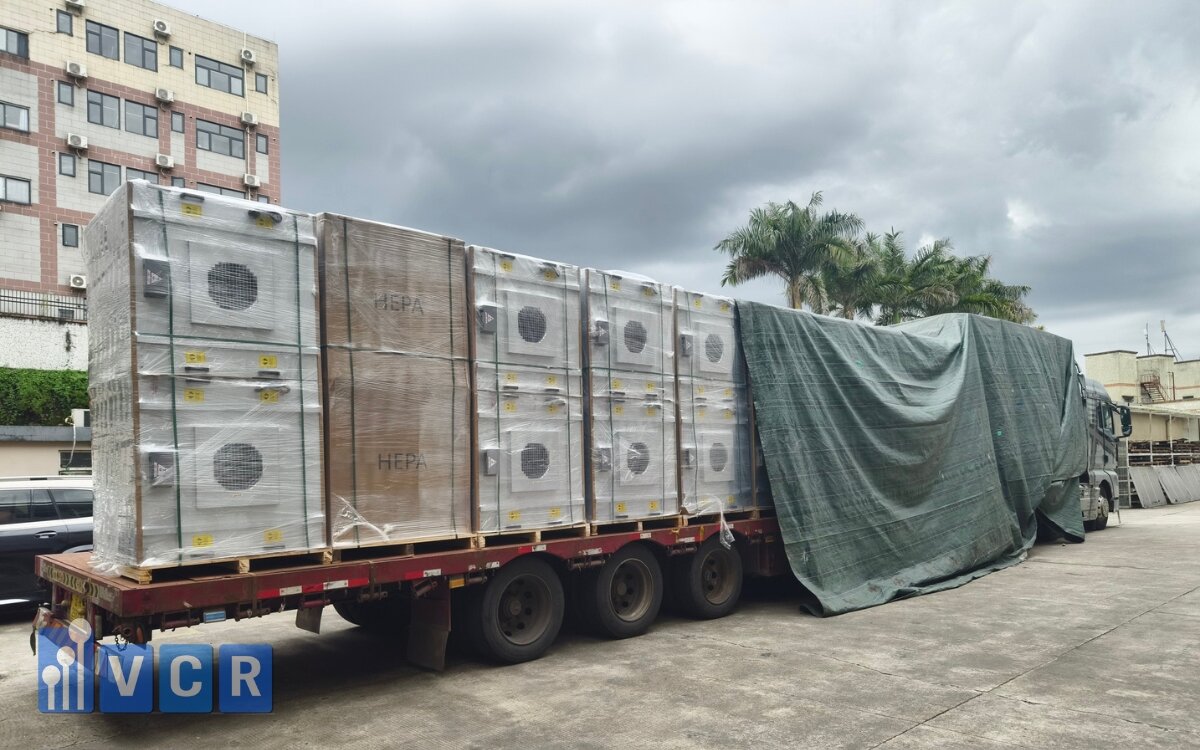
Installation Notes
- Installation location:
→ Mount directly onto the suspended ceiling in clean zones (filling, packaging, weighing areas)
→ Align units for vertical laminar airflow, minimizing turbulence - Maintaining stable differential pressure:
→ FFUs should be paired with an air return system to ensure positive pressure compared to surrounding hallways
→ Optional: install differential pressure gauges for continuous monitoring - Proper spacing:
→ One FFU typically covers an area of 2-4 m²
→ Ensure uniform placement to eliminate "dead zones" of airflow
Maintenance and Replacement Guidelines
|
Component |
Inspection Cycle |
Maintenance Tips |
|
HEPA/ULPA filter |
Every 6-12 months |
Measure pressure drop, replace when out of spec |
|
Fan motor |
Every 12-24 months |
Check noise, speed, lubrication |
|
Housing & seals |
Every 6 months |
Clean and inspect for air leakage |
|
Sensors (if any) |
As per manufacturer |
Regular calibration |
TIP: Keep a maintenance and operation log for each FFU to support GMP audits or ISO inspections.
6. Frequently Asked Questions about FFUs in Cosmetic Facilities
1. Is it mandatory to use FFUs in ISO 22716-compliant cosmetic factories?
→ Not strictly required, but highly recommended for critical areas like filling, packaging, and weighing, where particle or cross-contamination risks are high. FFUs effectively control contamination and maintain ISO Class 7-8 airflow conditions.
2. Should I choose an AC or EC motor for my FFU?
→ EC motors are quieter, more energy-efficient, and have a longer lifespan—ideal for continuous operation. AC motors are more affordable and suitable for less critical areas.
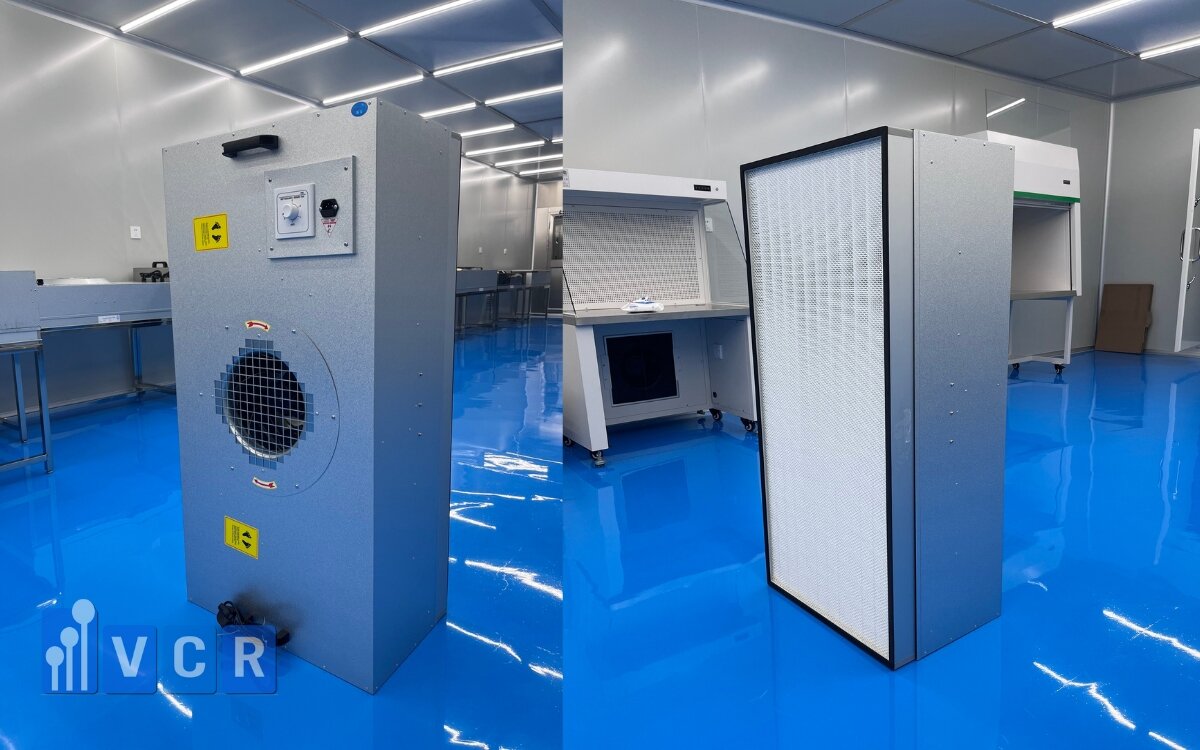
3. How often should FFU filters be replaced?
→ Typically every 6-12 months, depending on operating conditions. Use differential pressure readings to determine replacement time.
4. How much area can one FFU cover?
→ A 1200x600 mm FFU usually covers 2-4 m², depending on airflow and required cleanliness level. Calculations should follow facility layout and design.
5. Can FFUs be controlled remotely?
→ Yes. Some premium FFU models include remote control or can be integrated into a BMS (Building Management System) for centralized monitoring and control.
See more: HEPA and ULPA Fan Filter Units - Protecting Your Space Against COVID-19 (But Not a Silver Bullet)
7. Need a Detailed FFU Quotation for Your Cosmetic Facility?
Don’t rely on guesswork—let VCR's cleanroom specialists support you with:
Configuration advice tailored to ISO 22716 / GMP standards
Quotation based on your required size, quantity, and specifications
Support with technical drawings, HEPA filter certifications, and supplier qualification documents
Nationwide delivery, on-site installation, and scheduled maintenance
Contact us today:
Hotline: 090.123.9008
Email: [email protected]
Website: https://ffu.com.vn/
Diep VCR


